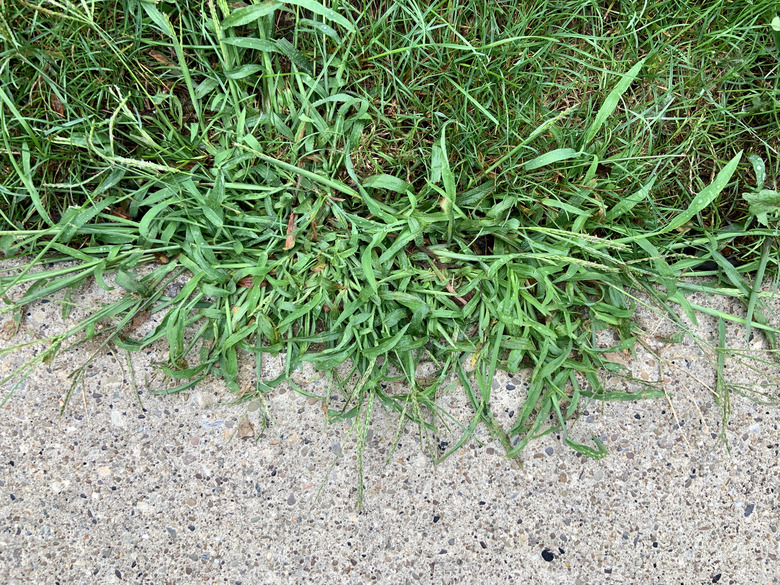Will Vinegar Kill Trees And Grass?
We may receive a commission on purchases made from links.
Vinegar's use as an herbicide is well-documented, but it is a "contact" herbicide, meaning that it impacts only whatever it actually contacts. If you spray a tree's leaves with vinegar, for instance, those leaves will die, but they will soon be replaced, and what's more, the roots won't be affected, so the tree will continue on its merry way.
You are more likely to have some at least temporary success spraying grass with vinegar, but not just any vinegar you find in your pantry. You need to use horticultural vinegar, which has an acetic acid content of 20 percent.
Tip
Spraying grass or trees with vinegar won't be all that effective. Grass is likely to easily regrow, and tree leaves will be replaced.
How Vinegar Works as a Weed Killer
How Vinegar Works as a Weed Killer
The primary ingredient in vinegar is acetic acid. The vinegar used in almost every home kitchen in an array of recipes usually has 5 percent acetic acid content. While this can kill some weeds, horticultural-strength vinegar, which usually has 20 percent acetic acid content, is far more effective. Vinegar is best used when targeting specific weeds rather than for widespread weed control because any desirable plants that come into contact with the vinegar will be affected; further, it can alter the soil pH.
Studies show, however, that vinegar is not as effective against grass, which is thin-bladed, as it is against broadleaf weeds, reports the USDA Agricultural Research Service, although a 20 percent solution did result in control ranging from 44 to 63 percent.
Vinegar is most effective on young plants rather than those that are well-established with robust root systems. Generally, leaves sprayed with vinegar will wilt and die within 24 hours. However, any weed seeds that have not yet germinated will not be affected, so weeds are likely to reappear, but this is true with many commercial herbicides too.
Spraying Grass or Weeds With Vinegar
Spraying Grass or Weeds With Vinegar
The first thing to do before you get out your sprayer is to don protective clothing, including goggles, because horticultural vinegar is highly toxic. In fact, vinegar with just an 11-percent acetic acid concentration has been known to cause immediate skin burns as well as to inflict permanent corneal injury if splashed into the eyes.
Warning
Horticultural vinegar is highly toxic, so protect yourself with appropriate gear before treating weeds.
Again, spraying grass with vinegar won't be all that effective. It will die back temporarily but will regrow. Focus on young weeds, ideally no more than two weeks after germination. Be prepared to perform repeat applications if the weeds are larger. In addition, take care to avoid spraying near metal, such as aluminum furniture, iron, or tin, as vinegar can cause etching.
Some DIYers recommend adding salt to vinegar for better results but be aware that salt will negatively impact the soil, as it is soluble and mobile in the soil, so it will spread to other areas and damage desirable plants.
The only recommended thing to add to horticultural vinegar is a little castile soap, which helps it adhere. The typical ratio is 1 gallon of vinegar to 1 cup of soap. Mix this in a garden sprayer and spray the weeds' leaves thoroughly until they are completely wet. Treat your weeds on a warm, sunny day when there's little or no wind and no rain is forecast.
References
- USDA Agricultural Research Service: Impact of Acetic Acid Concentration, Application Volume, and Adjuvants on Weed Control Efficacy
- Northwest Center for Alternatives to Pesticides: 5 Tips for Using Vinegar Herbicides
- Oregon State University Extension Service: Is Vinegar Really Good for Killing Weeds?
- LawnStarter: Vinegar as a Weed Killer: You're Probably Doing It Wrong
- University of Maryland Extension: Vinegar: An Alternative to Glyphosate?
